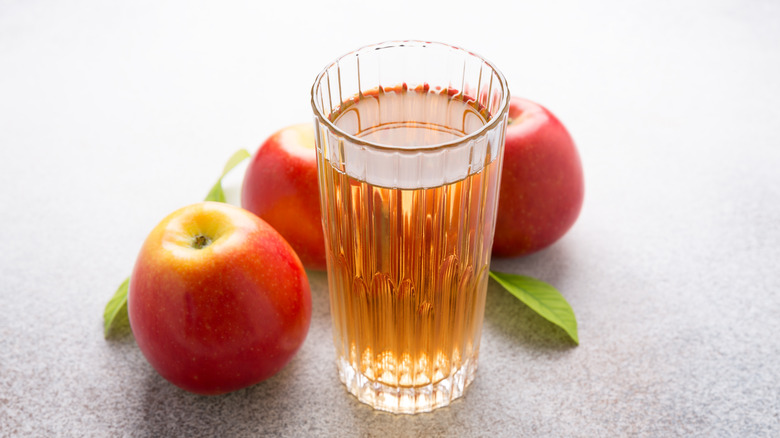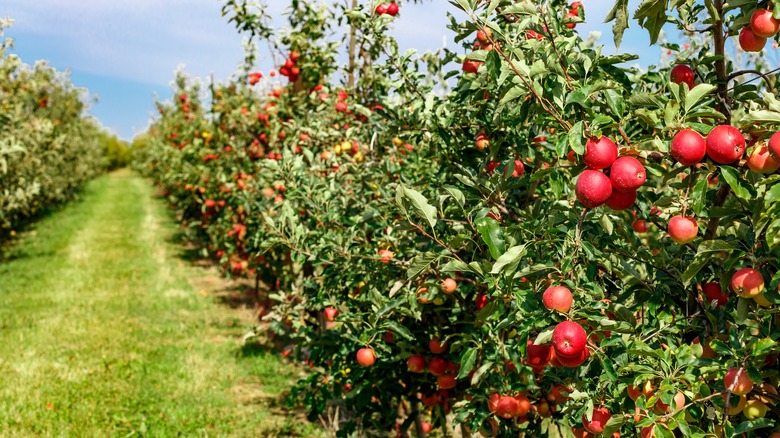Expanded Recall Targets Apple Juice With High Levels Of Arsenic Sold At Major Retailers
A nationwide apple juice recall has been expanded due to their levels of inorganic arsenic. Manufacturer Refresco Beverages and the U.S. Food and Drug Administration (FDA) initially issued the voluntary recall in late August but broadened it in September to cover additional lots of product. There haven't been any customer reports of health incidents or injuries associated with the recalled apple juice to date.
As Refresco explained in a statement, the company announced a voluntary recall of "select lots of 100% apple juice products produced using supplier provided concentrate [after becoming] aware that previously manufactured product contained inorganic arsenic slightly above the FDA's 10 ppb (parts per billion) action level." Affected retailers include Aldi, Walmart, BJ's, Weis, Dollar General, Walgreens. The recall announcement includes specific bottles of apple juice sold under store brands such as Great Value, Market Basket, Urban Meadow, Nature's Nectar, Wellsley Farms, Solevita, and Clover Valley.
This isn't the first time apple juice has been the target of a major national recall. It was involved in one of the biggest food recalls in US history in 1996 when Odwalla's unpasteurized apple juice was pulled from shelves after it was found to be contaminated with E. coli.
The evolution of arsenic in apple juice
Arsenic is an element found in soil, water, and in the air. It can end up in apple juice through several avenues. Apple trees may absorb it from the soil and water, especially if the orchards are located in areas with high natural arsenic levels or where arsenic-based pesticides were historically used back in the early to mid-1900s.
It exists in two forms: organic (less harmful) and inorganic (more toxic). Inorganic arsenic, in particular, is associated with potential health risks such as cancer when consumed at high levels over time. In June 2023, the FDA finalized its guidance for limiting the level of inorganic arsenic allowed in apple juice in an effort to protect children and small babies from excessive exposure to environmental contaminants. The FDA regularly collects apple juice samples to test and monitor for inorganic arsenic levels exceeding 10 parts per billion, and apple juice processors are expected to implement standards in the production and packaging of their products to comply with the FDA's determinations.
If you are in possession of a recalled food item, follow guidance to safely dispose of it. Some stores, like Aldi, are urging those with bottles of recalled apple juice to either discard it as soon as possible or return it to the store for a full refund.

